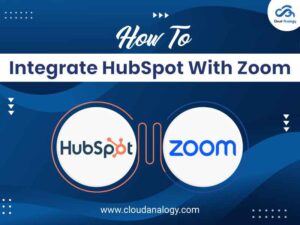Sharing is caring!
Salesforce, the world’s leading customer relationship management (CRM) platform, empowers businesses to streamline sales, service, marketing, and more in a unified environment. Its cloud-based solutions allow companies of all sizes to revolutionize operations, boost collaboration, and drive revenue growth. However, to maximize the benefits of their Salesforce investment, organizations must understand its licensing model.
Salesforce licenses determine the level of access, functionality, and features available to users, making it essential for businesses to choose the right combination of licenses to align with their operational needs and budget.
Salesforce licensing ensures that each user has the correct permissions, from basic CRM access to advanced AI-powered tools. It is very similar to renting an office space; your organization “leases” Salesforce functionality—selecting the right license ensures maximum productivity without overspending.
Overview Of Salesforce Licensing
Salesforce licensing is a structured framework that dictates how your team can access the platform’s various features and services. Selecting the right licenses ensures users can perform their roles effectively without unnecessary costs.
Why Salesforce Licensing Matters
- Cost Optimization: Proper licensing ensures organizations pay only for the functionalities needed.
- Role-Specific Access: Different users—from sales reps to IT professionals—require different levels of access.
- Feature Management: Licenses determine which Salesforce tools, apps, and custom functionalities users can utilize.
- Compliance & Security: Licensing ensures proper governance and secure access for internal and external stakeholders.
Understanding these fundamentals is crucial for businesses aiming to maximize their Salesforce investment.
Exploring Salesforce License Types
Salesforce offers a diverse range of license types to cater to unique business needs. The three main categories include User Licenses, Feature Licenses, and Platform Licenses, along with specialized licenses such as Einstein, Experience Cloud, and Marketing Cloud Licenses.
1. Salesforce User Licenses
User licenses are the foundation of Salesforce access. They provide core CRM functionalities, access to standard objects, and custom application capabilities.
Ideal for:
- Sales representatives: Manage leads, opportunities, and customer interactions.
- Customer service agents: Resolve cases and access customer histories.
- Marketing teams: Track campaigns and analyze engagement.
Key features:
- CRM functionalities
- Access to custom applications
- Standard objects like accounts, contacts, leads, and opportunities
Common User License Types:
- Standard User License: Core CRM and custom app access
- Chatter User License: Collaboration via Chatter
- Platform Starter & Platform Plus: Access to custom applications without full CRM
- Experience Cloud User License: For partners or customers
- Knowledge Only/Content Only Users: Limited access to Salesforce Knowledge and CRM content
2. Feature Licenses
Feature licenses add functionality beyond the base user license. They allow users to access specialized tools tailored to their roles.
Examples:
- Marketing User License: Access to advanced marketing automation tools
- Service Cloud License: Case management and service functionalities
- CPQ License: Advanced quoting and pricing tools
Ideal for:
- Sales teams requiring enhanced quoting or email tools
- Marketing teams need campaign automation
- Support teams using advanced case management
Feature licenses let organizations expand Salesforce capabilities without upgrading to more expensive editions.
3. Salesforce Platform Licenses
Platform licenses are intended for users who primarily use custom apps built on Salesforce.
Ideal for:
- Developers: Building and deploying custom applications
- IT professionals: Managing apps and workflows
- Non-CRM users: Access to specific business apps without CRM functionality
Key features:
- Custom objects and applications
- Integration with other business systems
- Automation tools like Process Builder, Flow, and Apex
Types:
- Platform Starter: 10 custom objects
- Platform Plus: 110 custom objects
4. Salesforce Identity Licenses
Identity licenses focus on secure user authentication and single sign-on (SSO).
Ideal for:
- Organizations managing multiple systems with high-security requirements
- Enterprises needing unified access across applications
- Compliance-focused businesses
Key features:
- Single sign-on (SSO)
- User authentication management
- Enhanced security controls
5. Salesforce Einstein Licenses
Einstein licenses bring AI-driven insights and predictive analytics to Salesforce.
Ideal for:
- Data-driven organizations
- Marketing teams predicting customer behavior
- Sales teams automating lead scoring and forecasts
Key features:
- Predictive analytics
- Automated insights
- Task automation
Einstein integrates seamlessly across Sales Cloud, Service Cloud, and Marketing Cloud editions, with some features available at additional cost.
6. Salesforce Experience Cloud Licenses
Experience Cloud licenses enable organizations to build communities for customers, partners, or employees.
Ideal for:
- Customer engagement
- Partner collaboration
- Internal employee networks
Key features:
- Customizable community portals
- Collaboration tools
- Feedback and support channels
Types include External App, Customer Community, Customer Community Plus, Partner Community, and Channel licenses.
7. Salesforce Integration User Licenses
Integration licenses are designed explicitly for system-to-system API access. Users cannot access the Salesforce interface, making it ideal for automated data integrations.
8. Marketing Cloud Licenses
Marketing Cloud licenses enable powerful marketing automation, journey mapping, and analytics. Editions include Basic, Pro, Corporate, and Enterprise, offering scalability for various organizational needs.
Ideal for:
- Marketing teams managing campaigns and customer journeys
- Enterprises running multi-channel marketing programs
Key features:
- Journey Builder
- Email Studio
- Analytics and reporting
9. Account Engagement (Pardot) Licenses
Pardot licenses are designed for B2B marketing automation, allowing multiple users under a single org-level license. They focus on lead management, campaign tracking, and personalized engagement.
Ideal for:
- B2B marketing teams
- Sales teams collaborating with marketing
- Enterprises with complex sales processes
Key features:
- Lead management
- Email marketing automation
- Campaign performance analytics
Choosing the Right Salesforce Licensing
Selecting the right Salesforce license mix is essential to balance cost-efficiency and functionality. Key considerations include:
- Business Objectives: Align licenses with roles and departmental needs.
- Budget: Avoid paying for features users don’t need.
- Scalability: Ensure licenses can accommodate growth.
- Compliance: Maintain governance, security, and regulatory standards.
Partnering with top Salesforce consulting firms can help organizations optimize their licensing strategy, ensuring maximum ROI. Experienced consultants assess usage, recommend suitable licenses, and provide guidance on cost-saving strategies while maintaining compliance.
Wrap Up
Salesforce offers a wide variety of licenses—from core user licenses to advanced Einstein AI and Marketing Cloud options—tailored to meet diverse business needs. Understanding these license types and strategically selecting the right combination ensures teams have the tools they need to succeed while optimizing costs.
Choosing the right license model cannot be considered a one-time task. In fact, this is an ongoing process that provides immense opportunities to reduce costs, enhance productivity, and better adoption across the organization.
To make the most of your Salesforce investment, reach out to Cloud Analogy, your trusted Salesforce consulting partner. Our experts will help you navigate complex licensing decisions, optimize your Salesforce environment, deliver innovative Salesforce application development services, and ensure compliance while minimizing costs.
Start optimizing your Salesforce licensing strategy today with guidance from the top Salesforce consulting services and maximize the value of the world’s #1 CRM platform.

Sachin Arora
Scrum Master and Principal Solutions Architect
Sachin, a renowned Scrum Master and Principal Solutions Architect at Cloud Analogy, has rich experience when it comes to working on process improvement in a fast-paced environment maintaining high level of quality in all deliverables. Sachin's expertise lies in varied hardware and software environments including Cloud technologies such as Salesforce, AWS, Cloud Foundry & Google App Engine and Mobile.Hire the best Salesforce Development Company. Choose certified Salesforce Developers from Cloud Analogy now.










